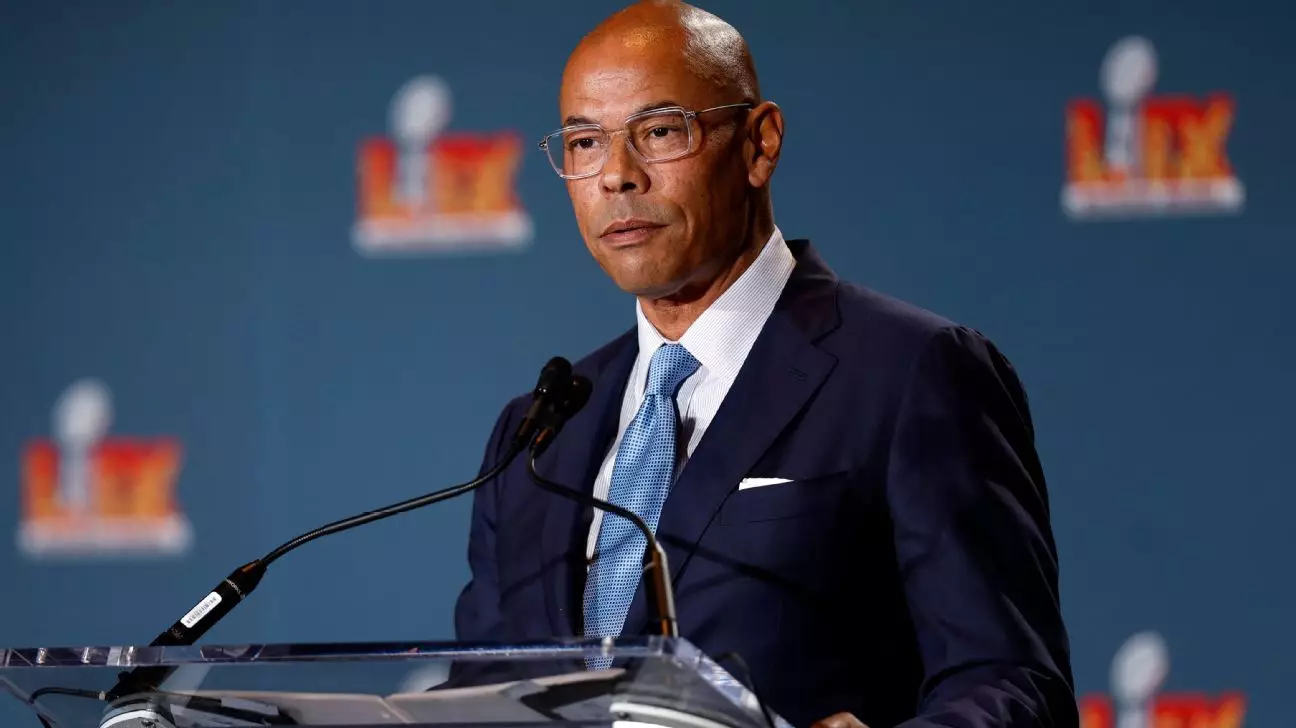In the high-stakes world of professional sports, leadership matters profoundly—yet time and again, we see careers marred by opaque dealings, conflicts of interest, and ethical lapses. The recent resignation of Lloyd Howell Jr. from the NFL Players Association encapsulates this troubling pattern. It highlights not only individual misjudgments but also systemic vulnerabilities that threaten the integrity of athlete advocacy and league governance. Analyzing Howell’s trajectory reveals that the issues go beyond one man; they expose how greed, lack of transparency, and misplaced priorities undermine the core values of fairness and accountability.
The crux of the controversy resides in Howell’s simultaneous involvement with the Carlyle Group, a private equity titan, and his leadership role within the NFLPA. His acceptance of a part-time consulting position with Carlyle, particularly given the firm’s ambitions in NFL franchise ownership, creates a glaring conflict of interest. It’s a reckless oversight—one that should have been flagged early, yet apparently was not, or worse, was ignored. Such dual roles, especially when involving investments in a league so deeply intertwined with wealth and corporate influence, threaten to distort the union’s primary objective: protecting players’ rights amid significant economic interests.
Furthermore, Howell’s refusal to step away from Carlyle when advised by union legal counsel underscores a troubling complacency. This stance suggests a misguided prioritization of personal or corporate gains over ethical accountability. The decision fuels public skepticism about whether union leadership genuinely serves players’ best interests or merely shields corporate allies at their expense. Such behavior erodes trust, undermining the very foundation of union-worker relationships, and illustrates a broader malaise within elite sports administration—one where transparency takes a backseat to clandestine dealings.
Opaque Operations and the Shadows of Corruption
The situation deepens with the revelation of FBI investigations into financial dealings surrounding the NFLPA and similar entities. The fact that a multibillion-dollar licensing firm, OneTeam Partners, is under scrutiny hints at a pervasive culture of financial maneuvering that often operates behind closed doors. For a union supposedly representing hardworking athletes, this opacity raises serious ethical red flags. How can players trust an organization potentially entangled in complex and possibly unscrupulous financial arrangements?
Adding fuel to the fire is Howell’s concealed agreement with the NFL that kept critical arbitration findings hidden from players. Such secrecy not only compromises transparency but also strikes at the heart of collective bargaining principles. When union leaders withhold information about arbitration outcomes—especially findings related to league-led attempts to reduce guaranteed player compensation—they directly undermine athletes’ rights and the seemingly sacrosanct principle of equitable treatment. It is a betrayal of the union’s core promise: to serve as a voice for players, not to serve as facilitators of league interests.
Compounding these issues is Howell’s past legal troubles, including a sexual discrimination and retaliation lawsuit from his tenure at Booz Allen Hamilton. Although details remain murky regarding whether players knew of this controversy before voting him in, the very existence of such allegations signals a failure at the vetting stage. When leadership is marred by unresolved personal issues, the integrity of the entire organization is called into question.
The Broader Implications for Sports Governance
Ultimately, Howell’s saga exemplifies a critical flaw in the governance architecture of professional sports: the allure of profit often eclipses moral responsibility. When union leaders or league officials become entangled in private interests, the entire ecosystem risks being compromised. This isn’t merely an individual failure; it’s a systemic one—a failure that enables nepotism, obscures accountability, and diminishes the trust fans, players, and the public place in the sport.
From a center-left perspective, the core issue is ensuring that sports institutions prioritize fairness, transparency, and ethical stewardship over greed and corporate entanglements. Sports have an enormous cultural value—they serve as platforms for social change, community building, and inspiring the next generation. When leadership becomes mule-headed about conflicts of interest and opaque dealings, it erodes these societal virtues, turning what should be a celebration of athletic excellence into a battlefield for corporate profiteering.
The Howell case should serve as a wake-up call: the overhaul of governance structures, stricter conflict of interest policies, and increased oversight are not optional but essential. It’s time for sports leadership to accept that integrity is the foundation of their legitimacy—and any attempt to hide the truth or prioritize personal gain is a betrayal to players, fans, and the broader society that champions their endeavors. Only through renewed commitment to transparency and accountability can the sport reclaim its moral authority and genuine public trust.


Leave a Reply